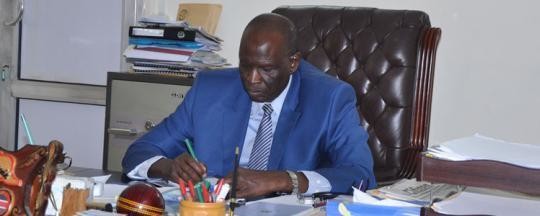South Sudanese economists and several MPs have criticized the county’s central bank for not acting to realign the country’s spreading exchange rates for the SSP against the dollar.
Charles Majak, a member of parliament from Twic County in Warrap state, has criticized the central bank and the finance ministry for not yet agreeing to realign foreign exchange rates.
The official exchange rate is about 3 SSP to the dollar, compared to a street rate about six times higher leading to high inflation and costs of goods.
Majak said a “do nothing approach” to these different exchange rates was hurting the economy and risks an uprising against the government owing to ever skyrocketing consumer prices.
“The president came out clearly and gave directive to the governor of central bank to sit down with the minister of finance so that they study together and come up with recommendations on how to realign the exchange rate,” Majak said.
“This was a wise decision and it should be implemented to salvage the situation because the current situation has reached a point where it is not desirable and it can undermine the legitimacy of the government,” Majak explained.
US-based South Sudanese economist Santino Garang has further criticized the Central Bank govenor Kornelio Koryom Mayiik for not acting to realign the exchange rates.
“The governor of central bank wants to portray the bank as a source of economic stability in a time of political change, even though in reality he might be doing quite the opposite,” Garang said.
“The behaviour of the central bank by continuing to deny that the currency is overvalued, and pushing back from devaluation, when market forces are quite clearly saying something completely different, is economically hurting the country, and more particularly the common people,” he continued.
Garang said the governor seems unable or unwilling to sell the economic case for devaluation to the country’s political leaders.
The ministry of finance and the management of the central bank have resisted pressure to devalue South Sudanese pounds in an attempt to realign the foreign exchange rate in the country. Instead, the two institutions have imposed foreign-exchange restrictions, affecting the economy as retailers and manufacturers struggle to source the funds needed to run their businesses.
Dollars are not available for most South Sudanese at the official rate, forcing people to go to the more expensive black market to purchase foreign exchange which is used to import goods. Only a selection of businesses and individuals mostly connected to President Salva Kiir’s close associates and relatives can access dollars at the official rate.
Central Bank governor Kornelio Koryom Mayiik has deflected criticism of his performance since taking the job from his predecessor by highlighting the central bank’s need for an expanded mandate on monetary policy.
Kenyi Spencer, an environmentalist with economic knowledge, said: “Central banks in developing countries like ours cannot sit idly by and concentrate only on price and monetary stability, development goals mean very little if they distract from more pressing economic issues.”
Agany Deng Kawac, a member of parliament from Aweil East County in Northern Bahr el Ghazal, said it was time the executive and the legislature work together in finding a way forward to addressing economic challenges in the country.
“I think we have reached a point we cannot work alone as institutions. It is a time where the parliament and the executive needs to work together,” he said. “If, as it looks, inflation continues to rise, it will not be very comforting to hear about positive economic outlook.”
Related:
Ateny Wek defends central bank governor over currency crisis
Investigative report: Son of central bank governor involved in currency trading in Juba




